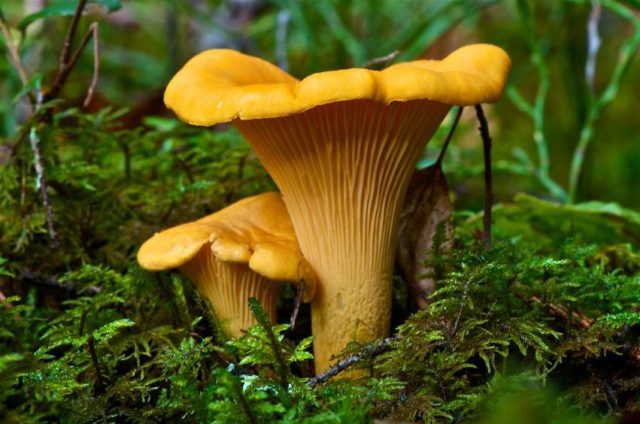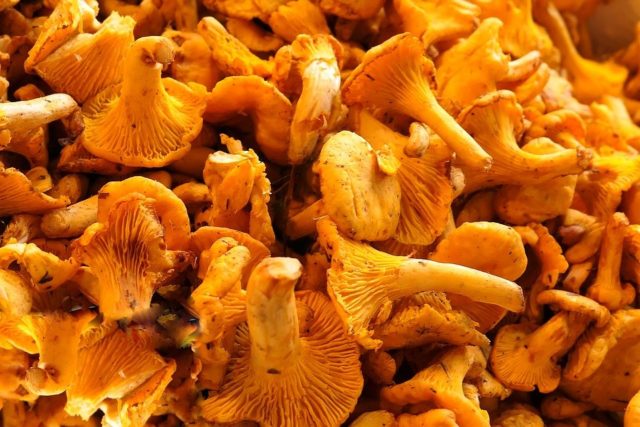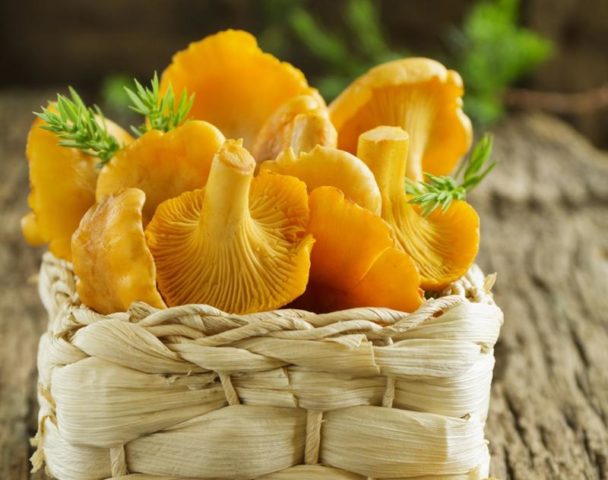Content
Chanterelles can be poisoned for many reasons, due to their own inattention or the poor quality of mushrooms. But in any case, it is useful to know what symptoms are accompanied by poisoning, and what needs to be done when the first signs appear.
Is it possible to be poisoned by chanterelles
Mushrooms from the Chanterelle family are known for their good taste and relative safety in use. Most members of the family are completely edible and, moreover, do not harm, even if eaten raw.
However, you can still get poisoned by chanterelles. This happens most often for several reasons.
- Getting false chanterelles into edible mushrooms can be costly when collecting such errors, since poisoning with large numbers of false chanterelles leads to serious consequences.
- Buying low-quality mushrooms from a random seller, if you buy fresh and even more canned mushrooms from your hands on the market, then, in principle, you cannot be sure that the seller offers exactly high-quality edible chanterelles.
- Careless handling of mushrooms before cooking. It is really not necessary to soak the chanterelles, but it is strictly necessary to sort them out after harvesting, cut off all the spoiled places and wash the mushrooms. If bacteria and dirt remain on the fungi, this is likely to lead to the development of poisoning.
- Picking mushrooms in unsuitable places. You need to collect chanterelles only in a clean forest away from roads and industrial facilities; it is strictly forbidden to go for mushrooms in places located near factories, dumps and cemeteries.
Salted or fried chanterelles can lead to poisoning if stored improperly. If the shelf life of the product has passed, or the storage conditions have been violated, it is better not to eat the fungi in food - it is quite possible that putrefactive processes have begun in them.
How long does chanterelle mushroom poisoning occur
Usually, the symptoms of chanterelle poisoning after eating mushrooms do not appear immediately - the poisonous substances take time to penetrate the bloodstream and spread throughout the body. On average, symptoms of poisoning occur 3-12 hours after the fungus has been eaten. If the mushrooms are badly spoiled, this will affect your well-being faster, if the toxicity of the mushrooms is low, poisoning will occur after a longer period.
The timing of the onset of symptoms of intoxication depends on other points.
- If a lot of low-quality or false mushrooms have been eaten, poisoning will come faster, since the concentration of toxic substances in the blood will be higher.
- Poisoning is more difficult for small children, adults with low body weight and the elderly - for them symptoms will appear faster.
Poisoning will come more rapidly and will be more pronounced in the presence of chronic diseases of the stomach and intestines.
Symptoms and signs of chanterelle poisoning
Basically, intoxication after chanterelle mushrooms is insignificant or moderate. It can be recognized by the following signs of chanterelle poisoning:
- dizziness and tinnitus;
- a feeling of heaviness in the stomach and pain in the navel in the center of the abdomen;
- bouts of severe nausea or repeated vomiting;
- a slight increase in body temperature;
- frequent bouts of diarrhea;
- severe headache with other symptoms;
- thirst, dry mucous membranes and dry skin.
Even if the poisoning seems mild enough, it is necessary to call a doctor when it appears. In particular, medical care is needed for children and the elderly, they tolerate intoxication much more severely, and the consequences for them can be fatal even with minor poisoning.
Sometimes poisoning with fried chanterelles, expired salted or pickled mushrooms immediately leads to much worse effects. Signs of serious poisoning are:
- headache and dizziness with impairment of hearing and vision;
- severe tachycardia and a feeling of lack of air;
- a sharp drop in blood pressure and weakness;
- loss of sensitivity in the arms and legs;
- a strong increase in temperature up to fever;
- cramps in the limbs, fainting and impaired consciousness;
- loss of strength and sharp pain in the stomach or intestines.
In these cases, it is necessary to call an ambulance as soon as possible, because the listed conditions threaten not only the health of the victim, but also his life itself.
What to do in case of chanterelle poisoning
Calling an ambulance may take some time, but assistance to a poisoned person must be provided even before the arrival of doctors. In case of fungal poisoning, the following measures must be taken.
- Assess the severity of the victim's condition - measure his pulse, pressure and body temperature.
- To wash out the stomach - first give the patient a few glasses of clean water to drink, and then induce vomiting to remove the remnants of the fungi from the stomach and prevent further absorption of toxins.
- Constantly give the victim non-carbonated drinking water or warm tea to prevent dehydration against the background of diarrhea and vomiting.
Possible consequences of chanterelle mushroom poisoning
Poisoning with raw chanterelles, as well as fried or salted mushrooms, can be very serious. At the same time, intoxication does not always immediately go into a strong stage, sometimes it can develop gradually. A couple of hours after the poisoning, a person may feel mild abdominal pain and nausea, but it is possible that if left untreated, the condition will worsen dramatically.
Chanterelle poisoning is very dangerous in its consequences. The toxins contained in false or spoiled real mushrooms deal a powerful blow to the vital organs of a person. Complications after intoxication can affect the functioning of the liver, kidneys, heart and brain, up to the sudden failure of one of these organs. Spoiled or initially low-quality chanterelles may contain traces of radionuclides or heavy metals, in which case the poisonous substances, remaining in the body, will continue to poison tissues and organs long after poisoning.
Chanterelle poisoning prevention
It is quite difficult to cope with the consequences of mushroom poisoning, so it is better, in principle, to avoid intoxication. To prevent poisoning, it is recommended to adhere to simple rules.
- It is possible to collect chanterelles only far from industrial facilities, landfills, roads and railways, if the air in the area is highly polluted, then chanterelles contain a lot of toxic substances.
- When collecting, you need to carefully examine each mushroom from all sides.Chanterelles must be young, healthy, intact insects, in addition, you must absolutely make sure that it is the edible mushroom that is found, and not its toxic false twin.
- Collected mushrooms cannot be stored for more than 12 hours; immediately upon arrival home they must be cleaned, washed, and then salted or heat treated.
- When storing salted and pickled chanterelles, it is important to follow the storage rules exactly - keep a jar of mushrooms only in a cool and dark place, do not eat chanterelles, the appearance and smell of which is suspicious.
Although in theory, chanterelle mushrooms can be tasted even raw, in practice it is not recommended to do so, the chance of poisoning when eating raw fungi is always higher.
In no case should you buy ready-made chanterelles from unfamiliar sellers, the likelihood of buying spoiled or even initially poisonous mushrooms is too high.
Conclusion
It is quite possible to get poisoned by chanterelles, despite the general safety of these mushrooms. But if you know the precautions and understand what needs to be done when intoxication occurs, then the consequences of poisoning can be minimized.












cooked in two waters 3.4 hours.
ate the chanterelles are now experiencing.